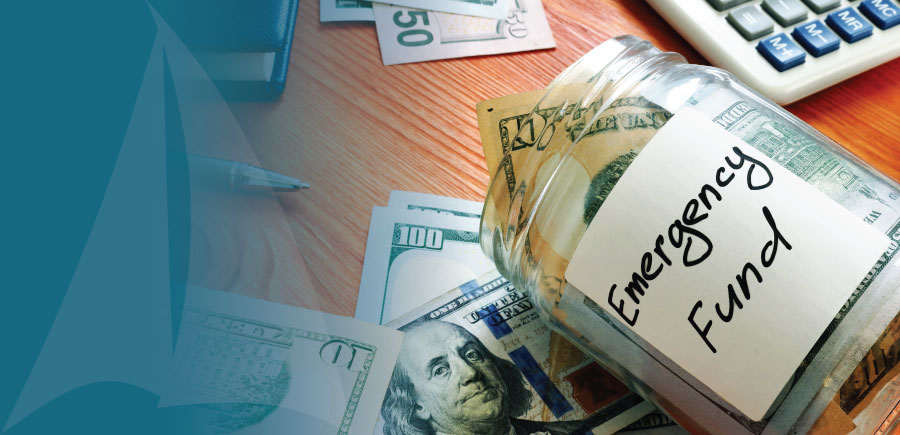featured
2025-06-09
Saving
published
4 Minutes
Vacation is a time to relax, recharge, and create lasting memories. But too often, those memories come with a side of buyer’s remorse.
So, how can you still have an amazing vacation without breaking the bank? With some smart planning and savvy financial strategies, you can create a fantastic, memorable experience without overspending.
Here’s how to stretch your dollars without shrinking your fun.
Set a Budget—Then Build Your Trip Around It
Start by deciding how much you’re willing (and able) to spend. Create a budget that includes:
- Transportation (flights, gas, rental car)
- Accommodation
- Food and dining
- Entertainment and activities
- Souvenirs
- Emergency fund
Once your budget is set, plan your destination and activities to match—not the other way around. While this helps prevent impulse spending and keeps you in control, understanding roughly what the trip may cost from the beginning, can help you look for and recognize potential deals.
BUDGETING MISTAKES YOU MAY WANT TO AVOID MAKING
Planning in Advance Verses Being Spontaneous & Flexible
Last-minute bookings can be expensive, but sometimes you can get great deals if you wait until the last minute or can be flexible with your vacation.
Being Spontaneous & Flexible:
Being flexible with your time of year, length of stay and destination of your vacation, while leaving room for spontaneity during your trip, helps you take advantage of local deals and last-minute sales.
For example, let’s say it’s late September and you have some vacation time you need to use. You really could use a change of scenery but don’t have a preference on whether you want to go to the mountains or to the beach. You decide to search the internet for last-minute deals where you find a great deal for two weeks from now on a bungalow 5 blocks from the beach. It has one full bed and a pull-out couch that would be perfect for the kids to sleep on. Because you can make the most of your memories on the beach and don’t mind the short drive, you know this accommodation will not be a deal-breaker for your trip.
By being spontaneous, you’re able to save money, but in return, you lose some control of your vacation. Enjoying a spontaneous trip depends on your vacation goals and on your personality. If you are the type to enjoy ‘winging it’ or are comfortable with going with the flow, a spontaneous vacation might be a wise financial choice. However, if you like to know what each day will bring, you may have better luck planning in advance.
Planning Ahead:
While being spontaneous and flexible with the destination and timeframe of your vacation can get you some great deals, often you lose the ability to plan your dream vacation. Planning well in advance can save you money, when planning the specific details of your trip is a top priority.
For example, let’s say you’ve been dreaming of a relaxing vacation in wine country and really enjoy a specific winery from the Napa Valley. You are likely to get a better deal, ensuring a stay near your favorite winery, in accommodations that are comfortable for all joining you, by booking well in advance.
Planning ahead also gives you the opportunity to compare prices, set alerts for airfare drops and take advantage of early bird discounts. It also gives you the advantage of saving early by locking in rates on higher yield savings accounts like CDs that can help accumulate interest over time and add to your vacation budget.
Book Accommodation Smartly
Deciding on whether or not to book a hotel, home-share, or BnB-style accommodations depends on the type of vacation you’re looking for and the amenities you require for your ideal vacation.
Are you traveling with your family or a larger group? Maybe a BnB-style accommodation like AirBnB or Vrbo would be a good choice, given the options for more rooms, space, and kitchen area. If traveling alone or with one other person, a hotel could be a better choice.
Take into consideration the amenities that come along with your accommodations.
Are you staying in a hotel? Look for a place with a complimentary breakfast.
Are you vacationing at the beach? Does your accommodation provide beach gear or bikes?
How about a vacation by the lake? Does your accommodation provide kayaks, rafts or canoes?
Depending on your idea of a great vacation, you’ll want to get the most out of your stay. Compare accommodations based on your needs and use amenities at these accommodations to help decide which options will contribute the most to your vacation.
Travel During the Shoulder Season
Peak season means peak prices. Traveling just before or after the high season (known as “shoulder season”) can save you quite a bit on flights and accommodations. Destinations are less crowded too, which means more enjoyment for less money. It’s a great idea to try and avoid holidays for travel as well.
Eat Like a Local (Not a Tourist)
Dining out for every meal adds up fast. Save money by:
- Shopping at local markets or grocery stores for snacks.
- Making your own meals and packing picnic lunches.
- Eating where locals eat—not in tourist-heavy areas.
- Bringing a refillable water bottle instead of buying bottled drinks.
- Splurge on one or two special meals—but make the rest budget-friendly.
Bonus tip: Immerse yourself and family into the culture. Are you vacationing near the beach? Try having your own seafood boil. Are you staying in a cabin in the wilderness? Try grilling out. Even vacations in new countries can bring an exciting opportunity to experience new cuisine in a fun, exciting way.
Look for Free and Low-Cost Activities
Some of the best vacation experiences are free:
- Museums and attractions often have free days or discounted rates.
- Parks, beaches, and scenic hikes cost next to nothing but offer endless entertainment.
- Use travel apps or local tourism websites to find deals and discover hidden gems.
Avoid Currency Exchange Pitfalls
If you’re traveling abroad:
- Check with your bank ahead of time to learn about their policies on foreign transactions.
- Research partnerships with your bank and ATMs in your destination. Is your bank a part of the All Point Network?
- Avoid airport kiosks or street currency exchanges—they often do not have the best rates.
TRAVELING ABROAD? CHECK OUT THESE FINANCIAL TIPS
A Good Time Doesn’t Have to Be an Expensive One
At the end of the day, the best vacations are about experiences, not extravagance. With smart spending habits and a little creativity, you can have a fun, fulfilling vacation—and come home with memories, and not a ton of debt.
Are you in the early stages of vacation planning? Learn the best ways to save money for your next trip.
SAVE MONEY FOR YOUR DREAM VACATION




